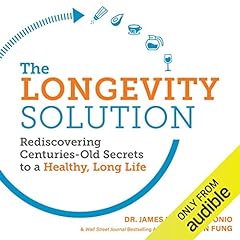
The Antioxidant Revolution
An Idea of Longevity
No se pudo agregar al carrito
Add to Cart failed.
Error al Agregar a Lista de Deseos.
Error al eliminar de la lista de deseos.
Error al añadir a tu biblioteca
Error al seguir el podcast
Error al dejar de seguir el podcast
 Exclusivo para miembros Prime: ¿Nuevo en Audible? Obtén 2 audiolibros gratis con tu prueba.
Exclusivo para miembros Prime: ¿Nuevo en Audible? Obtén 2 audiolibros gratis con tu prueba.Compra ahora por $10.32
-
Narrado por:
-
Mandy Grant-Grierson
Carbons within food nutrients (carbohydrates, protein, lipids) are stable because they are bonded (held) to hydrogen (by electrons). When food is broken down in your stomach (during digestion), the electrons holding the carbons together within the food are released (food is oxidized). At this time, the carbon becomes unstable and forms free radicals. Free radicals travel randomly in the body, ripping through cells and damaging DNA in cells. Have you wondered about the consequence of DNA damage by free radicals? Does the body have a way to handle the behavior of these free radicals? Can our choices of food aid the body’s ability to fight these free radicals better? How ironic is it that your attempt to eat for energy results in the generation of free radicals that are potentially damaging to your body cells?
Do you know your DNA gets shorter every time your cells divide to make new cells? This happens in your body cells because they lack the special enzyme needed to extend the ends of your DNA. Your reproductive cells, on the other hand, have such special enzymes called telomerase. Have you wondered how this could influence the way our body cells age? Learn about these two factors: free radicals and the shortening of DNA, how they influence aging, and how you could counter the actions of the former.
©2022 Prince N. Agbedanu PhD (P)2022 Prince N. Agbedanu PhDLos oyentes también disfrutaron:




















Las personas que vieron esto también vieron:

I learned a lot
Se ha producido un error. Vuelve a intentarlo dentro de unos minutos.


